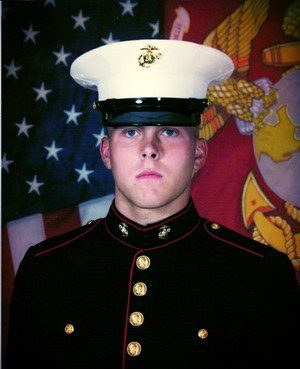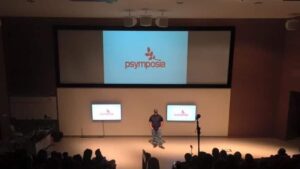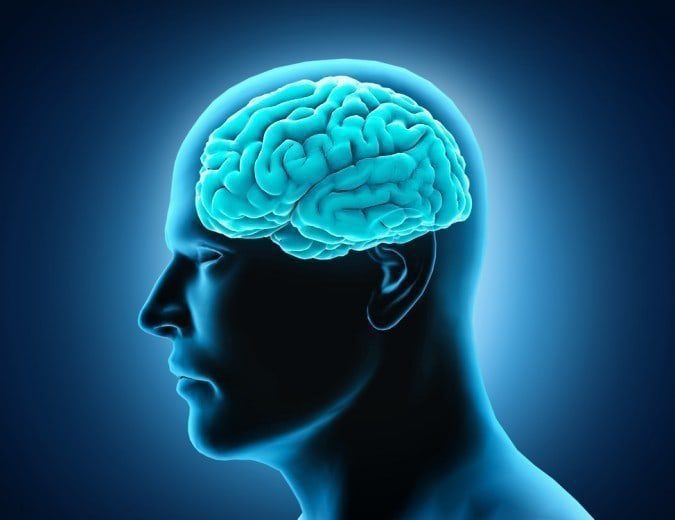Last October, CNN aired an episode of This is Life with Lisa Ling featuring a team of military veterans seeking treatment for posttraumatic stress disorder (PTSD) using the psychedelic brew ayahuasca. One of those veterans, Ryan LeCompte, launched the non-profit organization Veterans for Entheogenic Therapy and organizes regular trips to Peru. He is currently in his last year of a graduate program at Naropa University in Boulder, Colorado.

Ryan was a featured speaker at the Psymposia conference last weekend at the University of Massachusetts, where he shared his story as a Marine veteran who served for four years before focusing his efforts on helping other veterans that are returning home suffering from PTSD. During his talk, Ryan announced his project as principal investigator for a new observational study titled, “Ayahuasca-assisted Psychotherapy for Chronic, Treatment-resistant PTSD in Combat Veterans.” Like many of the studies looking into the safety and efficacy of psychedelic-assisted therapies, the study is sponsored by the nonprofit education and research organization, Multidisciplinary Association of Psychedelic Studies (MAPS).
Ayahuasca is a brew known to originate in the Amazonian region of South America, containing two key psychoactive compounds that elicit a powerful hours-long journey. It is central to many rituals and rites of passage of indigenous tribes in the jungle. It is illegal in the U.S. except for extremely limited religious purposes. However, it is available to those who have the means to travel outside the U.S. and participate in ceremonies at retreat centers in the jungles of the Amazon. These ceremonies typically last a week, and cost roughly one to three thousand dollars, and an increasing number of veterans and others have gone public with anecdotal accounts of unmatched healing for PTSD, anxiety and other ailments via the shamanic brew.

The U.S. Department of Veterans’ Affairs (VA) estimates that one in six veterans returning from Iraq and Afghanistan suffers from PTSD. Often, veterans and othersreport that their prescription medications for PTSD either fall short or create unbearably adverse side-effects that make them feel detached and zombie-like. The lack of successful PTSD treatments available, coupled with the skyrocketing rate of suicide amongst veterans (22 commit suicide per day according to VA statistics), have convinced researchers like Ryan and organizations like MAPS that PTSD is a huge burden that is likely to benefit from alternative therapies. Alternative treatments for PTSD are necessary, they argue, not just for veterans but also for others, i.e. victims of trauma and sexual assault, experiencing its debilitating symptoms.
While the study is still in its earliest stages, it will be the first of its kind.
Psymposia – Envisioning a Post Prohibition World
For decades, psychedelic research has been stifled by the lasting legacy of the Controlled Substances Act of 1970. The U.S. Drug Enforcement Administration (DEA), which formed just a few years later, serves as the enforcer of the prohibitionist law. The agency has successfully limited all scientific investigation into the potential positives of substances like LSD, psilocybin, MDMA and cannabis — all of which are classified as Schedule I, meaning they have no recognized medical use and a high potential for abuse.
However MAPS and a few other research organizations have fought for years to complete studies looking into various psychedelics, and the research results thus far have been overwhelmingly positive.
While the shackles of the drug war are loosening, and in some cases being torn down when it comes to cannabis reform laws, thousands of patients still have no legal access to medicines that could treat illnesses that have not responded to traditional treatment.
An active and burgeoning community of activists, artists, researchers, and patients gather at various conferences where knowledge has been permeating despite the legislative and law enforcement forces that try to smother it. Over 200 people attended the Psymposia conference over the course of this past weekend and 100 or so people tuned into the MAPS-sponsored livestream of the event.
Featuring a “Fresh Voices” section of speakers, the organizers of Psymposia stood out among other psychedelic conferences in their effort to include more members of the African American community and several women speakers, whose absence is noteworthy at many similar events often featuring primarily white men from academia.
Not only did the conference include demographically diverse speakers, but also a wide swath of topics ranging from psychedelic parenting to how sex work intersects with trip guides.
Some of the more well-known speakers included Chris Kilham (who makes frequent appearances on Fox News and The Dr. Oz Show as ‘The Medicine Hunter’), Earth and FireErowid (whose contributions to the online library of information on drugs serve as a free resource for anyone with an internet connection), and Dorion Sagan (award winning writer and son of the late Carl Sagan). The conference website will be posting recordings of the conference events for those who were unable to attend.
